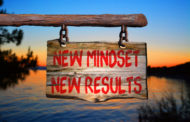Emotional Intelligence Awareness Month

Originally published at www.crediblemind.com
Since the publication in 1990 of Daniel Goleman’s groundbreaking book Emotional Intelligence: Why It Can Matter More Than IQ the concept of emotional intelligence has become mainstream. The Emotional Intelligence Awareness Month Campaign is initiated each year in October by the Emotional Intelligence Institute, a non-profit organization dedicated to educating youth and adults about the science, practice, and benefits of emotional intelligence.
Over the past three decades we have seen a surge of new science exploring the relationship between our emotions, brains, minds, and bodies. While we are still in the early stages of our understanding, the evidence so far clearly shows that healthy emotional development is essential for our physical and mental well-being, our relationships, and our ability to create the life we desire.
Prenatal Stress
The role of healthy emotional development begins from the moment we are born, and possibly even before. Some studies show that high levels of stress or depression during pregnancy can have negative impacts on the baby’s health and the mother’s ability to bond with the infant.[1]
According to the Harvard University Center on the Developing Child, the combination of our genes and our early life experiences shapes the quality of brain architecture and establishes either a sturdy or a fragile foundation for our future learning, health, and behavior.[2]
Daniel Siegel’s work on interpersonal neurobiology has shown that the quality of a young child’s relationship with its primary caregivers has a profound effect on both psychological and neurological development, impacting everything from our sense of identity to our professional success.
Social Emotional Learning in Schools
Our public education system has begun to recognize that emotional development is as important as cognitive development, with a growing number of social emotional learning (SEL) programs being implemented and required across the country. SEL is defined as “the process through which young people and adults acquire and apply the knowledge, skills, and attitudes to develop healthy identities, manage emotions and achieve personal and collective goals, feel and show empathy for others, establish and maintain supportive relationships, and make responsible and caring decisions.”[3]
With caring adults to provide a nurturing, stable, and engaging environment, children can learn how to cope with adversity as a normal and important part of healthy development. But prolonged stress in the absence of loving and protective adult support can have negative long-term consequences.[4]
Emotional Learning into Adulthood
Of course, many of us do not reach adulthood without some unresolved emotional wounds. Therefore developing our capacity to work with our own emotions – especially challenging emotions such as fear, anger, shame, and grief – is an important part of our healing journey. What we cannot allow ourselves to feel will remain unresolved, and will tend to play out in our personal and professional relationships (including how we parent our own children) until we gain the tools, skills, and support to help us integrate the experience.
Robert Waldinger, Director of the Harvard Study of Adult Development, says that close relationships are essential for our health and well-being, yet relationships are complicated and require ongoing work to sustain them.[5] Having difficult conversations, managing conflict, and being able to give and receive love skillfully all require emotional intelligence.
Mental Health Crisis
As we continue to navigate the coronavirus pandemic, an economic recession, and social-political polarization, the resulting anxiety and overwhelm is making the mental health crisis in this country worse than it already was. But emotional intelligence can help us stay resilient, adaptable, optimistic, and focused on achieving our goals in the face of so much uncertainty and disruption. It also allows us to treat others with empathy, kindness, and compassion. And the good news is the core skills of emotional intelligence can all be learned and developed through deliberate practice and with the support of a qualified coach or therapist.
Core Emotional Intelligence Tools
It’s an exciting time to be learning about what makes us human, and how we can embody more of our humanity. Research shows that not only is emotional intelligence crucial for our individual wellbeing and our relationships, it also separates great leaders from good leaders.
So regardless of whether you’re looking to feel and perform at your best, increase the quality of your social connections, or create a positive impact on the world around you, the core EI competencies of self-awareness, self-regulation, social awareness, and relationship management are invaluable tools. Well worth the time and energy it takes to strengthen them!
[1] Dunkel Schetter, C., & Tanner, L. (2012). Anxiety, depression and stress in pregnancy. Current Opinion in Psychiatry, 25(2), 141–148. https://doi.org/10.1097/yco.0b013e3283503680
[2] Three Core Concepts in Early Development, Harvard University Center on the Developing Child, https://developingchild.harvard.edu/resources/three-core-concepts-in-early-development/
[3] https://casel.org/what-is-sel-4/
[4] Three Core Concepts in Early Development, Harvard University Center on the Developing Child, https://developingchild.harvard.edu/resources/three-core-concepts-in-early-development/
[5] What makes a good life? Lessons on the longest study on happiness. https://www.ted.com/talks/robert_waldinger_what_makes_a_good_life_lessons_from_the_longest_study_on_happiness?language=en#t-389358





